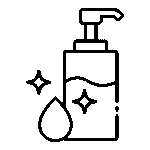FREQUENTLY ASKED QUESTIONS
This often happens due to irritating ingredients such as strong fragrances, alcohols, or preservatives (e.g., parabens). Some people have sensitive skin that reacts even to low concentrations of these substances. To prevent irritation:
Choose products labeled fragrance-free and alcohol-free.
Perform a patch test before full application.
Consult a dermatologist if irritation persists.
Not really. Most anti-aging creams require 6–12 weeks of consistent use to show visible improvements. Active ingredients like retinol, peptides, and hyaluronic acid work gradually by stimulating collagen production and improving skin elasticity. Any product that promises instant, permanent results is often relying on temporary effects (e.g., surface tightening polymers).
Not always. Some natural ingredients can cause severe allergies (e.g., concentrated essential oils), while many “chemical” ingredients (like glycerin or hyaluronic acid) are safe and highly effective. The key is to choose certified, dermatologically tested products free from harmful substances, regardless of their origin.
There are several reasons:
The product may not suit your skin type.
Weak or unapproved formulations.
Continuous sun exposure without using sunscreen.
Underlying conditions like deep melasma require medical treatment, not just cosmetics.
It can, if:
Makeup is not thoroughly removed every day.
Low-quality or counterfeit products are used.
The formula contains pore-clogging (comedogenic) ingredients.
To avoid this:Use gentle yet effective makeup removers.
Choose non-comedogenic, silicone-free products.
Allow your skin regular makeup-free days.



